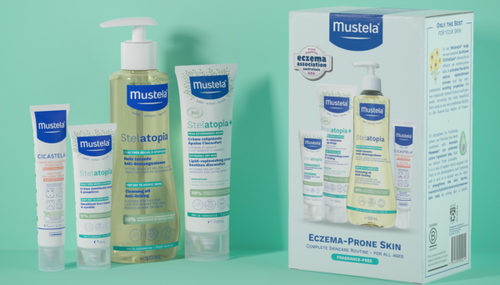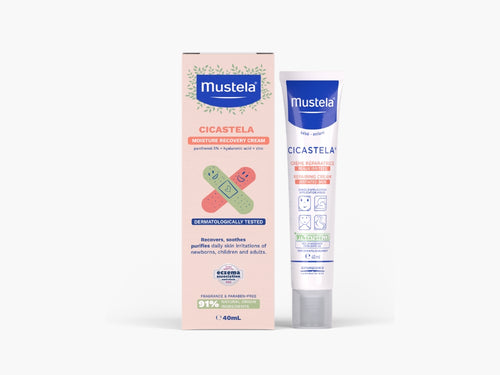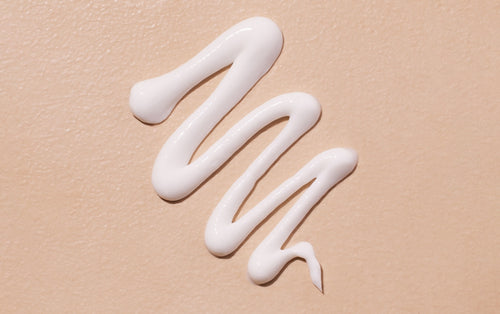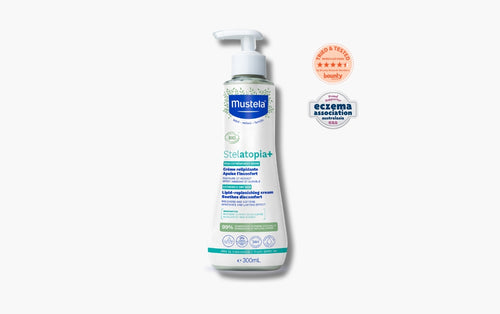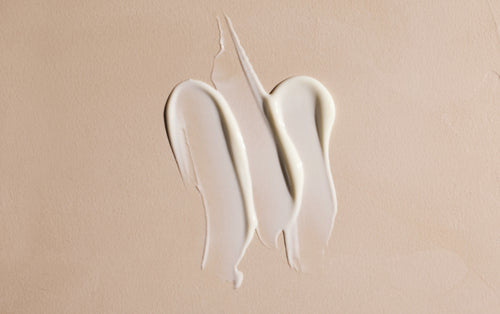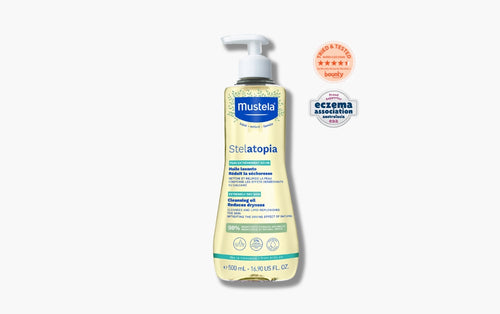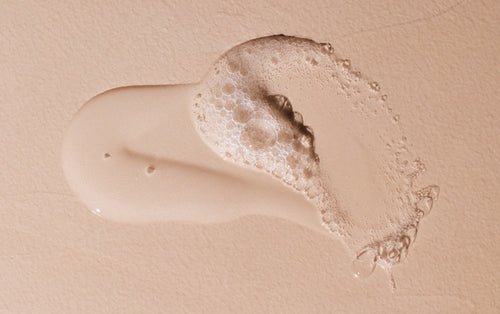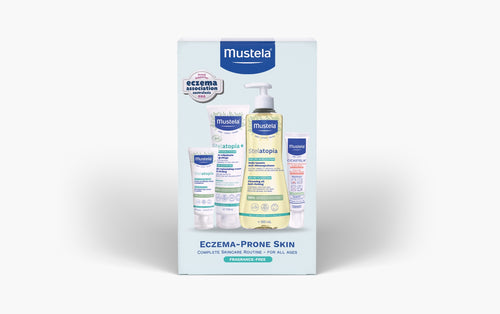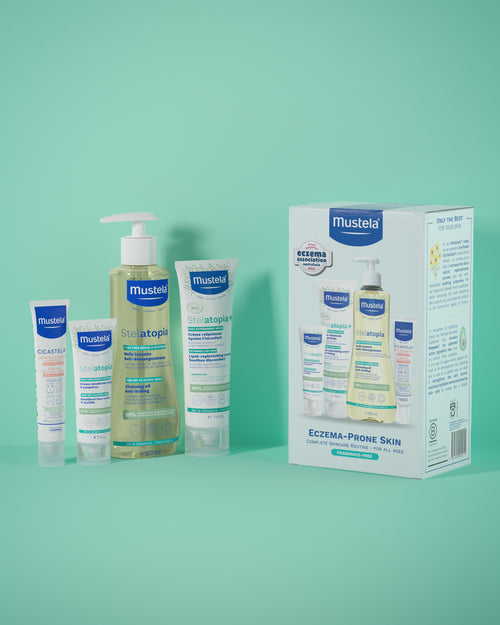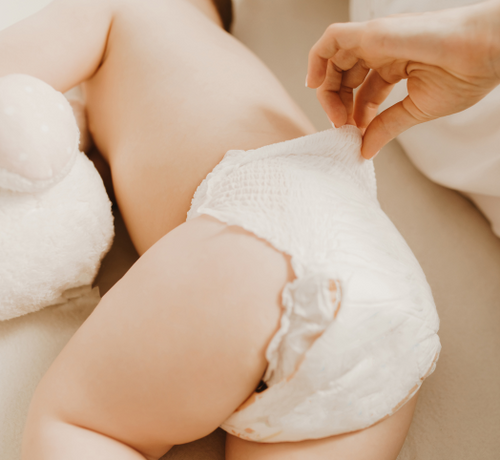Itching is one of the most pronounced symptoms for those with eczema-prone skin, making the selection of appropriate clothing essential for comfort and symptom management. In partnership with Dr. Clarence De BELILOVSKY, a dermatologist and a member of the Mustela experts' circle, we're here to guide you through choosing the best clothes for your child from birth onwards to mitigate eczema symptoms effectively.
Choosing the Right Fabrics
The feel of fabric against the skin can be the difference between comfort and an eczema flare-up. Here are some guidelines to help you select the best options:
- Opt for Gentle Fabrics: Choose materials that are pleasant to the touch. Fabrics like cotton, linen, silk, and hemp are ideal because they are soft, lightweight, and breathable, allowing air to circulate and reduce sweat buildup which can aggravate eczema.
- Avoid Rough Textures: While natural, fabrics like wool can be too harsh for sensitive skin. Its rough texture may lead to irritation, so it's best avoided despite its warmth.
- Steer Clear of Synthetics: Synthetic fabrics such as polyester and acrylic might seem soft and are low maintenance, but they trap heat and moisture, failing to absorb sweat, which doesn't help with eczema.
Selecting the Right Clothing Styles
The style of clothing can also impact skin health:
- Avoid Tight Clothing: Turtlenecks and other tight-fitting clothes can cause overheating and irritation. Opt for loose-fitting garments that allow the skin to breathe and reduce the risk of irritation.
- Layer Smartly: In colder weather, layering can help keep your child warm without the need for itchy fabrics like wool. Consider layering a cotton bodysuit or thermal underwear with a thick cotton t-shirt and a velvet vest. This strategy keeps skin irritation to a minimum while maintaining warmth.
Clothing Care Tips
Proper care of clothing can further reduce the risk of eczema flare-ups:
- Washing Techniques: It’s not just the detergent but how you wash the clothes that matters. Ensure thorough rinsing to remove all soap residue. If unsure, run an extra rinse cycle to make certain no irritants remain on the clothes.
- Drying Clothes: Whenever possible, avoid drying clothes outside to prevent pollen from sticking to the fabric, which can aggravate sensitive skin. Instead, dry clothes indoors where they can stay free of outdoor allergens.


